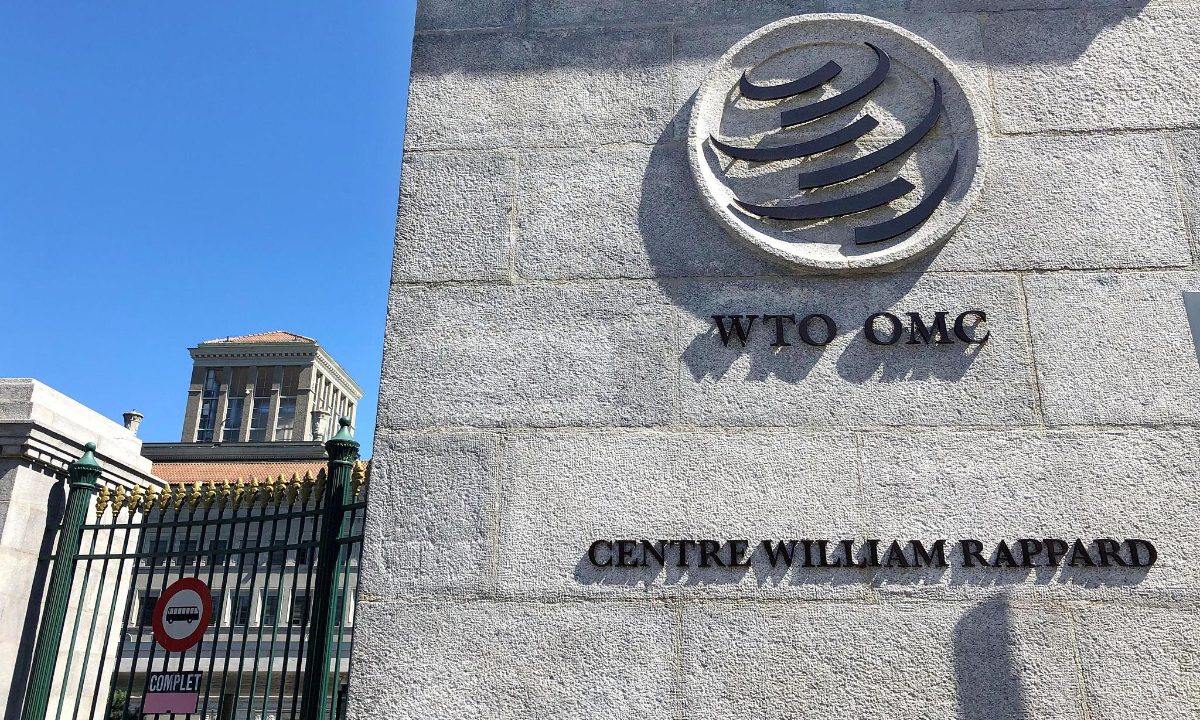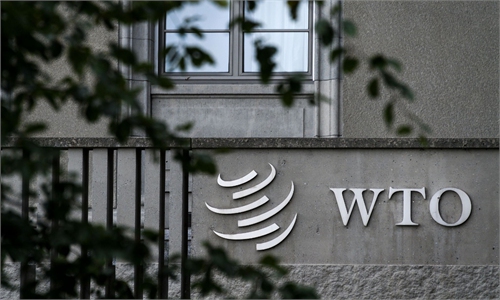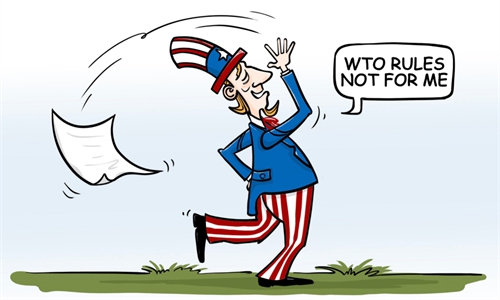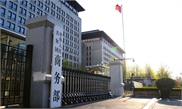WTO concludes ninth review of the trade policies and practices of China, praising country’s contribution

WTO Photo: VCG
The ninth review of China's trade policies and practices by the World Trade Organization (WTO) concluded on Friday in Geneva, Switzerland. Throughout the session, the Chinese delegation, led by Vice Minister of Commerce Li Fei, actively and comprehensively addressed concerns raised by WTO members about China's economic and trade policies, firmly refuting any unfounded accusations.
During the review, which spanned from Wednesday to Friday and featured statements from 71 WTO members, the Chinese delegation staunchly defended its position, refuting false allegations over "overcapacity" and "economic coercion."
The Chinese side also emphasized that its subsidy policies comply with WTO regulations and attributed the success of Chinese companies to market competition rather than government subsidies.
Attending members lauded China's significant achievements in reform and opening-up, as well as its substantial contribution to the WTO. They also expressed willingness to further deepen economic and trade relations with China, and conveyed high hopes for China’s role in driving global economic recovery, fostering practical cooperation with developing nations, and upholding the multilateral trade system, the Xinhua News Agency reported.
China also highlighted its contribution to the global green and low-carbon transition and its role in tackling climate change with its new energy products. Despite the rapid growth in the supply of new energy products, they still fall short of global demand, negating claims of "overcapacity." The notion of "economic coercion" was also dismissed as it has never been and will not be a part of China's trade policy, the Chinese delegation emphasized.
Data from the China Passenger Car Association shows that from January to May 2024, global car sales reached 35.66 million units, with new-energy vehicles accounting for 5.85 million units, equaling only 16.4 percent of the total car sales, indicating substantial room for growth.
China's new-energy passenger vehicles have grown faster than the global average, with the country’s global market share exceeding 64 percent in the first five months of 2024, significantly boosting the global green transition.
Additionally, China criticized some member states for exerting long-arm jurisdiction, setting control lists, and arbitrarily sanctioning enterprises and individuals of other members, identifying these actions as the real sources of economic coercion.
Trade policy reviews are one of the main functions of the WTO. The reviews are a crucial mechanism for transparency, where members can question each other’s trade policies and express concerns, allowing for a better understanding of policy directions and commitments. According to WTO rules, members whose trade volumes rank among the top four globally are reviewed every two years.
Global Times



